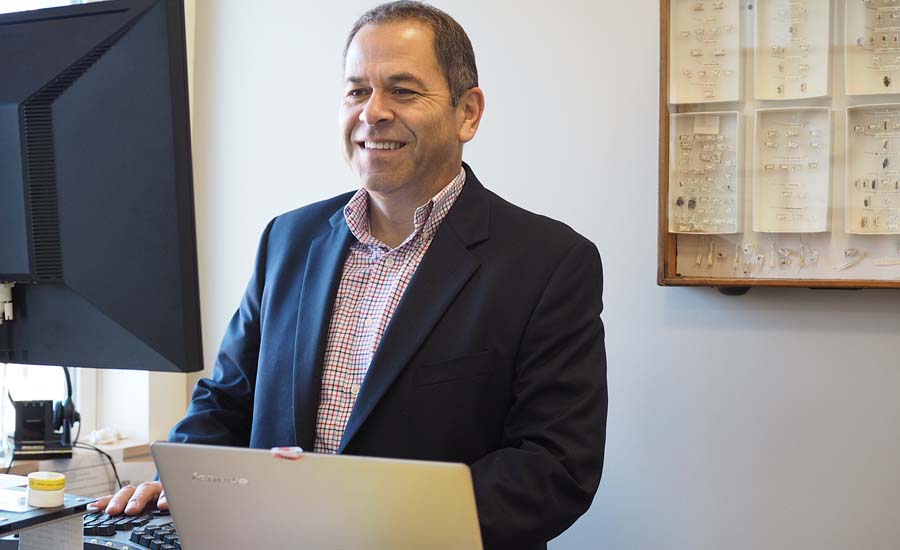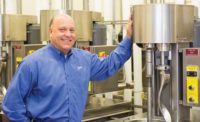When Emmi Roth USA was crowned as 2016 World Champion at the World Championship Cheese Contest for the first time since 1988, the winners included more than the food manufacturer that crafted the new regional specialty cheese. The real beneficiaries were the employees, local dairy farmers and communities that surround the Monroe, Wis.-based cheesemaker.
Expanding opportunities
Roth Grand Cru Surchoix earned Best of Class in the smear ripened hard cheese category, and was named World Champion in a competition that attracted nearly 3,000 entries from 23 countries and 31 states. In fact, Emmi Roth’s Platteville, Wis., operation is said to be the first facility to produce Grand Cru specialty cheeses in the region.
Financing from the federal New Markets Tax Credit program allowed the U.S. subsidiary of Emmi of Switzerland to double the scale of the original plans, expanding to 77,000 square feet, making the $44 million investment the company’s largest in the United States to date. The expansion meant 50% greater production capacity and a third more jobs than would have been otherwise available.
The Emmi Roth facility is also built to the latest sustainability standards, and has improved economic prospects for new hires and local farmers, who supply 80% of milk needed for processing. The steady demand for high-quality milk exerts a positive effect on the base price for local milk, a welcome change for farmers in the commodity-based milk market.
Positives for operations and members
The same federal economic development financing program also made it possible for Foremost Farms USA, Baraboo, Wis., to upgrade its Richland Center and Appleton, Wis., plants. Foremost Farms enhanced operational efficiencies, increased output and retained 114 direct jobs. The organization also revolved equity to past and current members. The 2,400-member co-op employs over 1,000 individuals in dairies throughout the upper Midwest. Many members are smaller, rural dairy farms with an average herd size of 150.
Foremost Farms initiated a number of energy conservation projects, including partial funding for a $35 million municipal anaerobic digester to reduce landfill gas emissions and generate renewable energy. Earlier this year, Foremost Farms also announced a joint venture with Glanbia plc, Ireland, Dairy Farmers of America Inc. (DFA), Kansas City, Mo., and Michigan Milk Producers Association (MMPA), Novi, Mich., to build and operate a new cheese and whey production facility in Michigan.
Assistance for rural food processors
Rural food processors and other manufacturers confront specific challenges when seeking capital and skilled workers because of their geographic isolation. Since 2000, the federal New Markets Tax Credit Program has provided financing to build capacity and create jobs, especially in rural communities.
To qualify for New Market funding, the project is required to pass a “but for” test. The project cannot be successfully funded through conventional financing sources and must drive capital into the most economically distressed areas. Among the criteria, the business must be in a defined low-income community, derive at least 50% of its income in a low-income community or 50% of its employees must qualify as low-income individuals at the time of hire.
Records that endure
Ehrmann Commonwealth Dairy is no stranger to world records. Six years ago, 200 gallons of Greek-style yogurt from the Brattleboro, Vt., dairy headquarters was a key ingredient in the then-world record for the 327.58-gallon largest yogurt smoothie flavored with maple syrup and apples from local Vermont farms. The company holds a more enduring record as a fast-growing, job-creating sustainable food enterprise in Greek-style or strained yogurt.
Ehrmann Commonwealth Dairy’s success has been a lifeline to struggling dairy farmers. Two entrepreneurs created the yogurt manufacturing facility during the depths of the 2008 recession, when dwindling numbers of dairy farmers faced limited options for milk sales. Commonwealth partnered with Ehrmann AG, a large family-run business based in Germany, benefiting from their yogurt-making expertise and deep pockets.
Built to the latest sustainability standards, the $100 million-plus business has grown faster than anticipated, quickly reaching its production target of 32,000 tons annually. The facility created 120 new full-time production jobs to date, well beyond its original estimate of 50 employees in the first three years, and increased demand for high-quality local milk by 100 million pounds per year in the low-income census tract.
Last year, Ehrmann Commonwealth Dairy produced 75 million pounds of yogurt, most of that at the Vermont plant. Its success has led to a second facility in Casa Grande, Ariz., and in December 2016, Ehrmann Commonwealth Dairy announced an expansion to double the size of its Vermont plant.
Triple bottom line benefits
The ultimate measure of success for all these projects are the quality refrigerated foods they produce. The positive impacts have extended far beyond the company’s bottom line to new jobs, growing demand for milk for local dairy farmers and a commitment to the latest sustainability standards.
The New Market Tax Credits assisted with funding in the food processing and many other industries, spanning manufacturing, the arts, healthcare, technology, hospitality, agriculture, conservation and more. Going forward, the program’s goal is to continue to diversify shallow economies and revitalize communities.





